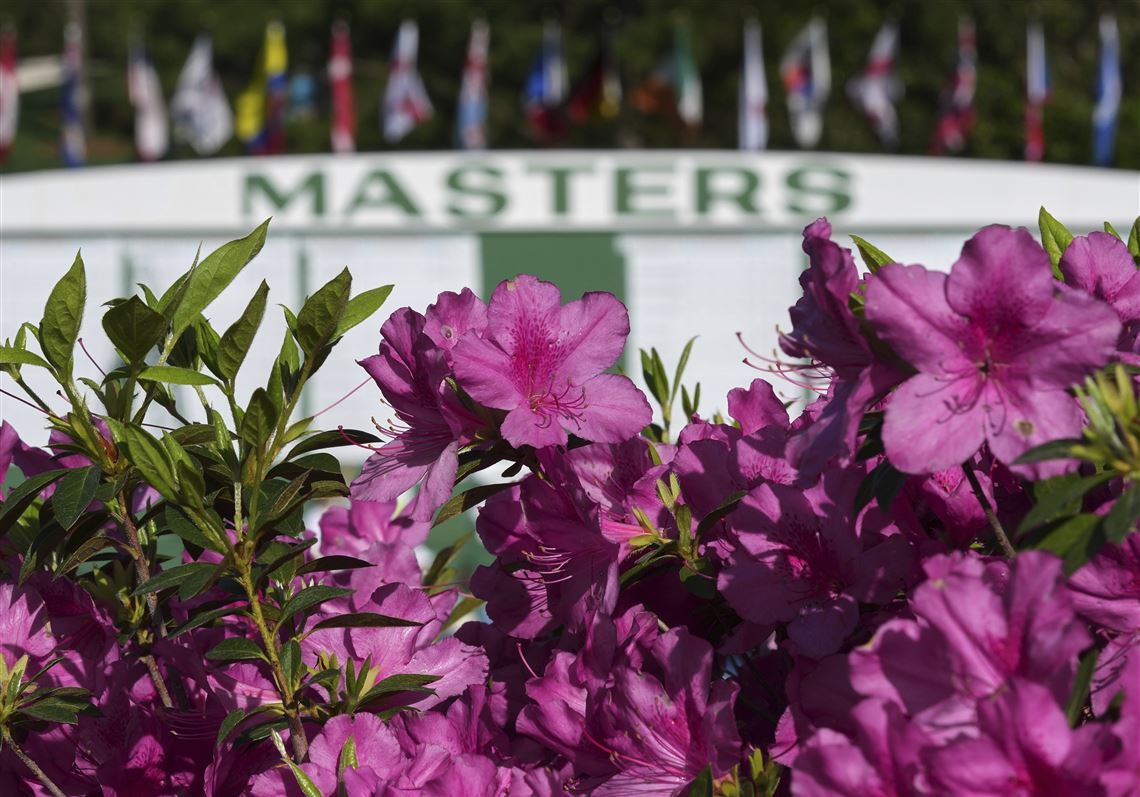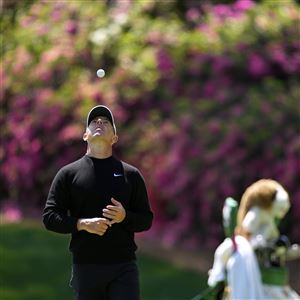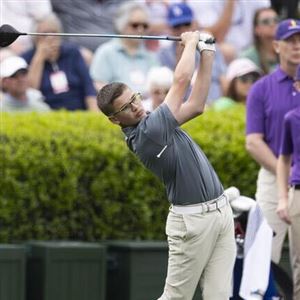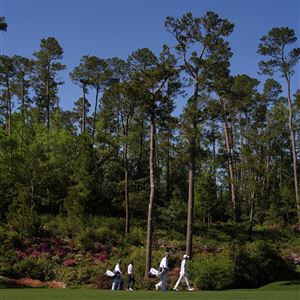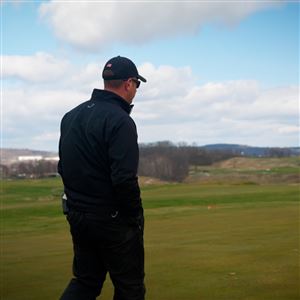AUGUSTA, Ga. - On Thursday, when Round 1 of the Masters gets underway, the threesomes will include defending champion Scottie Scheffler and his playing partners Justin Thomas and Jose Luis Ballester. The range will buzz with activity as the field warms up.
After waiting for more than an hour in line at the merchandise tent, fans will line the fairways from tee boxes to greens, crowds filling the bleachers, particularly on the back nine. The pins won’t yet be in their traditional Sunday spots, but they will be best accessed by avoiding the rough and the sand traps that protect this historic course.
The above all seems normal, right? Let’s give an editor’s pen to the late Clifford Roberts and Robert Tyre “Bobby” Jones Jr., co-founders of Augusta National Golf Club, the Merriam and Webster of the lingo here.
On Thursday, when the first round (not Round 1) of the Masters gets underway, the groupings (not threesomes) will include defending champion Scottie Scheffler and his competitors (not playing partners) Justin Thomas and Jose Luis Ballester. The tournament practice area (not range) will buzz with activity as the field warms up.
After waiting for more than an hour in line at the golf shop (not merchandise tent), patrons (not fans) will line the fairways from teeing grounds (not tee box) to putting surfaces (not greens), patrons (not crowds) filling the observation stands (not bleachers), particularly on the second (not back) nine. The flagsticks (not pins) won’t yet be in their traditional Sunday hole locations (not spots), but they will be best accessed by avoiding the second cut (not rough) and the bunkers (not sand traps) that protect this historic course.
There. Much better.
The Masters is a lot of things: a harbinger of spring, a heck of a golf tournament, a tradition unlike any other. It’s also, frankly, kind of annoying.
Listen, this is my favorite professional week of the year. Augusta National is gorgeous. The azaleas are real. Showing a first-timer around the property is a treat. The concession prices are a pleasant throwback. And the competition rarely disappoints.
But all of that can be true, and the Masters can be excessively controlling.
Roberts and Jones founded Augusta National in 1932, and the Masters debuted two years later. Ever since, the tournament has served not just as golf’s first major championship of the calendar, but as an arbiter of decorum in sports. Running, quite famously, “is considered to be unacceptable behavior,” according to the official Masters spectator guide. That’s fine. To me, the pimento cheese sandwiches aren’t worth sprinting toward anyway.
But does it matter whether a person who wins a lottery for the right to buy a ticket and attend the tournament is called a “patron” or a “fan?”
To Augusta National, it does. The above edits are all from guidelines the club’s broadcast partners send out to the legion of announcers who will describe coverage and provide interviews on ESPN, the Golf Channel and CBS. It’s just from one of the networks to its on-air talent, not an official edict from the club, but it also reminds that tournament updates appear around the course on leader boards, not scoreboards; that the plants that provide so much pop of color are shrubs, not bushes; and that the brown areas underneath the trees next to the rough - excuse me, next to the second cut - is pine straw, not pine needles.
Uh … who cares?
Well, Jones and Roberts certainly did. They preferred “patrons” over “fans” or “crowds” because it sounded more dignified, and they wanted the Masters to be nothing if not dignified. From the very beginning, this wasn’t just a sporting event. It was a lesson in how to conduct oneself. The club itself would dictate those terms.
“In golf,” Jones wrote in 1967, “the customs of etiquette and decorum are just as important as rules governing play. It is appropriate for spectators to applaud successful strokes in proportion to difficulty but excessive demonstrations by a player or his partisans are not proper because of the possible effect upon other competitors.”
That’s nice, so genteel and Southern. Try applying that to the galleries at, say, the upcoming Ryder Cup at Bethpage Black on Long Island. It won’t work.
It works at Augusta, where the cheers match the shots they’re responding to and the groans feel empathetic, not jeering.
But the club dictating language parameters is one of the elements that gives it a draconian feel. At the back of the spectator guide are three paragraphs that outline the Masters mission. They conclude: “We would also like, if we can, to contribute something to the advancement of the game.” Inclusion could and should be part of that.
So much already gives the place and the event a unique feel: No cell phones allowed. No signs or selfie sticks, either. A fan — sorry, a patron — can bring in a single folding chair, plant it near one of the greens — sorry, putting surfaces - or behind a particular tee box — sorry, teeing ground - and leave it for hours, knowing it will be there when they come back. That’s refreshing.
And everyone is soooooooooo friendly. The entire place oozes sweet tea and candied pecans.
“Welcome to Augusta,” said a security guard Tuesday morning, not far from the driving range - sorry, tournament practice area. “This is real. You’re at the Masters. Enjoy!”
Which fits the tenor of the tournament. The volunteers who man the ropes are cordial, not scolding. The people who sweep the pine needles - sorry, pine straw - back off the sidewalks smile. Augusta National is responsive and, in some ways, forward-looking - constantly searching for improvements. That can be both obvious and massive (allowing women to become members, duh) - or subtle and small (moving a tee box - sorry, teeing ground - back or smoothing one area of a green - sorry, putting surface).
“Any time our studies indicate that the present policies can be improved, we will be quick to act,” Roberts wrote back to a fan who had offered a written suggestion, according to the Masters media guide. “And, please believe me when I say letters such as the one you wrote are very helpful. Many of the changes adopted in the past were suggested by our loyal and keenly interested patrons.”
Well, then, here’s a letter from the media center - shoot, it’s supposed to be called the “press building” - with a small suggestion:
Ease up on the language restrictions. “Patrons” feels patronizing. Loosen those ties - and relax.
First Published: April 10, 2025, 8:00 a.m.







